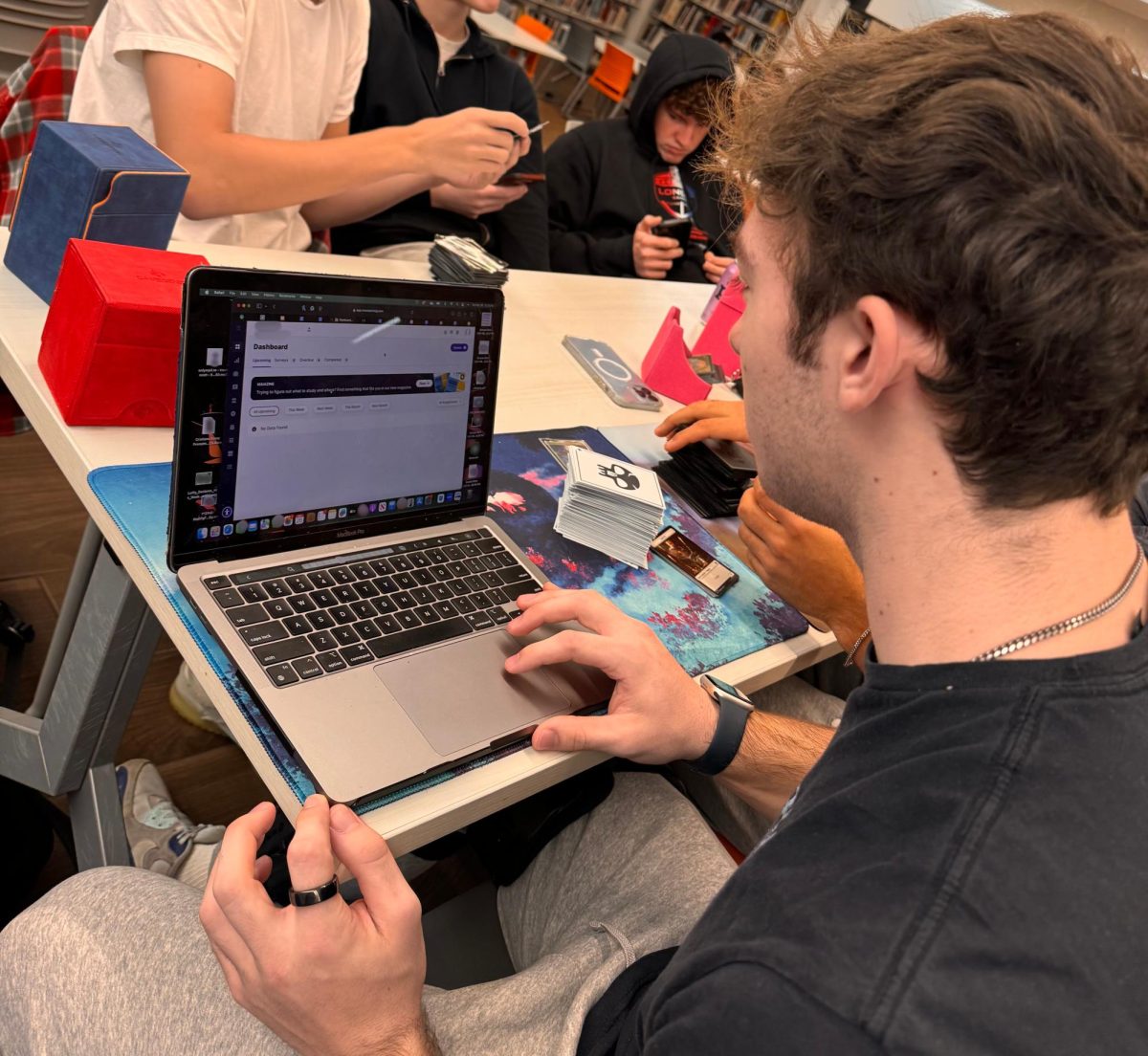Each fall, the buzz of college applications and the anticipation of decision results ripple through the senior class at Latin. Alongside essays, interviews, resumes, and tests is another critical component: teacher recommendation letters.
While most high schools expect students to approach teachers directly to ask for recommendation letters, Latin uses a unique system.
The College Counseling Office asks students to list their top four teacher choices for recommendation letters, according to Director of College Counseling Alexandra Fields. “At the same time, we survey our faculty to gauge their level of enthusiasm in writing for each student, and then we play matchmaker,” she said.
The process begins in the second semester of junior year during college counseling class. Ms. Fields explained that students have a lot of time to ask questions about the process and think through which teachers they want to write letters of recommendation.
Like many other high schools, Jones College Prep takes a different approach. Shayna Ellis, a 2021 Jones College Prep graduate, explained that at her school, students secure their own recommendation letters by personally approaching teachers.
Lincoln Park High School alum, Will Spitznagle, who graduated in the class of 2024, said his school used the same method as Jones College Prep, where students had to personally ask teachers for letters of recommendation.
Francis W. Parker School also uses the traditional method, where a student directly asks a teacher for a letter of recommendation, according to Parker senior Benjamin Graines.
While Loyola Academy in Wilmette uses a variation on Latin’s process, by including college counselors in the selection process, they keep the same overall method as most high schools. “At Loyola, we had to ask teachers ourselves for recommendation letters,” said Kate Ginn, who graduated from Loyola in 2023. “But our college counselors helped guide us on the decision of which teachers would be best to ask.”
Kate said she appreciated asking the teachers one-on-one, noting, “I enjoyed doing it this way because it gave you the freedom to choose who you think has the best perception of you as a student.”
The Latin system is unique but proves to be effective. “[The process] ultimately reduces stress for both faculty and students,” Ms. Fields said.
The Latin system fosters a more supportive process and reduces stress by assigning letter writers based on student preferences and faculty engagement. For example, Latin’s system ensures students can focus on making thoughtful decisions instead of rushing. “It’s not a first-come-first-serve system, so students don’t feel like they have to race to be the first to ask a teacher,” Ms. Fields said.
On top of stress about the timing aspect, students are also worried about their connection with the teacher.
Ms. Fields said, “I think sometimes our students have this creeping thought in the back of their minds that ‘what if I thought that teacher really liked me and they didn’t?’ And so the system just takes that fear away.”
Senior Salvador Guerra said that while some students may lose the personal touch of asking the teacher themselves, there are many advantages that come with this system.
“Having a list made it easier because I could see all of my options, and then determine from there who I think I have the best connection with and could write the best letter,” Salvador said. “I think the way we do it here at Latin makes it easier.”
The process also relieves stress for the faculty writing the letters.
Upper School Math teacher Michelle Neely said, “It’s a stressful process, but I think that writing about a kid I have plenty to say about and a student knowing that a teacher cares enough, makes [the process] more meaningful.”
Ms. Fields added, “It prevents [our faculty] from being in the position where they’re writing for a student that they just don’t feel confident they can write an excellent letter.”
The College Counseling Office also hopes to avoid overwhelming faculty with letters of recommendation for students. “We are able to keep an eye on the distribution amongst teachers to ensure that no single teacher is being asked to write too many letters,” Ms. Fields said.
While the college counselors aim to match students with the best possible letter writers, one potential drawback is the chance of being paired with a student’s third or fourth choice rather than their first or second.
Some seniors have always been comfortable with the system, while others may not have been as quick to embrace it.
Senior Elana Goldwin said, “I was very skeptical of the system because [the college counselors] were also saying some teachers are more popular than others, and you don’t always get your top choices.”
Luckily for Elana, it ended up working out as she got her top two choices for her recommendation letters.
“I was very happy about that,” she said. “It was honestly a very easy process because I didn’t have to reach out or do any meetings on my own, and they figured it out for you, which is really nice.”
Once the application process is complete, the College Counseling Office tends to receive feedback on the letters. Ms. Fields said, “We oftentimes will hear from college admissions folks that the recommendations were really great and were really helpful.”
Elana left students with a piece of advice for determining who to rank for recommendation letters. She said, “Choose the teacher you’ve had meetings with and who you’ve made an effort with, because those teachers will know you the best.”

















































